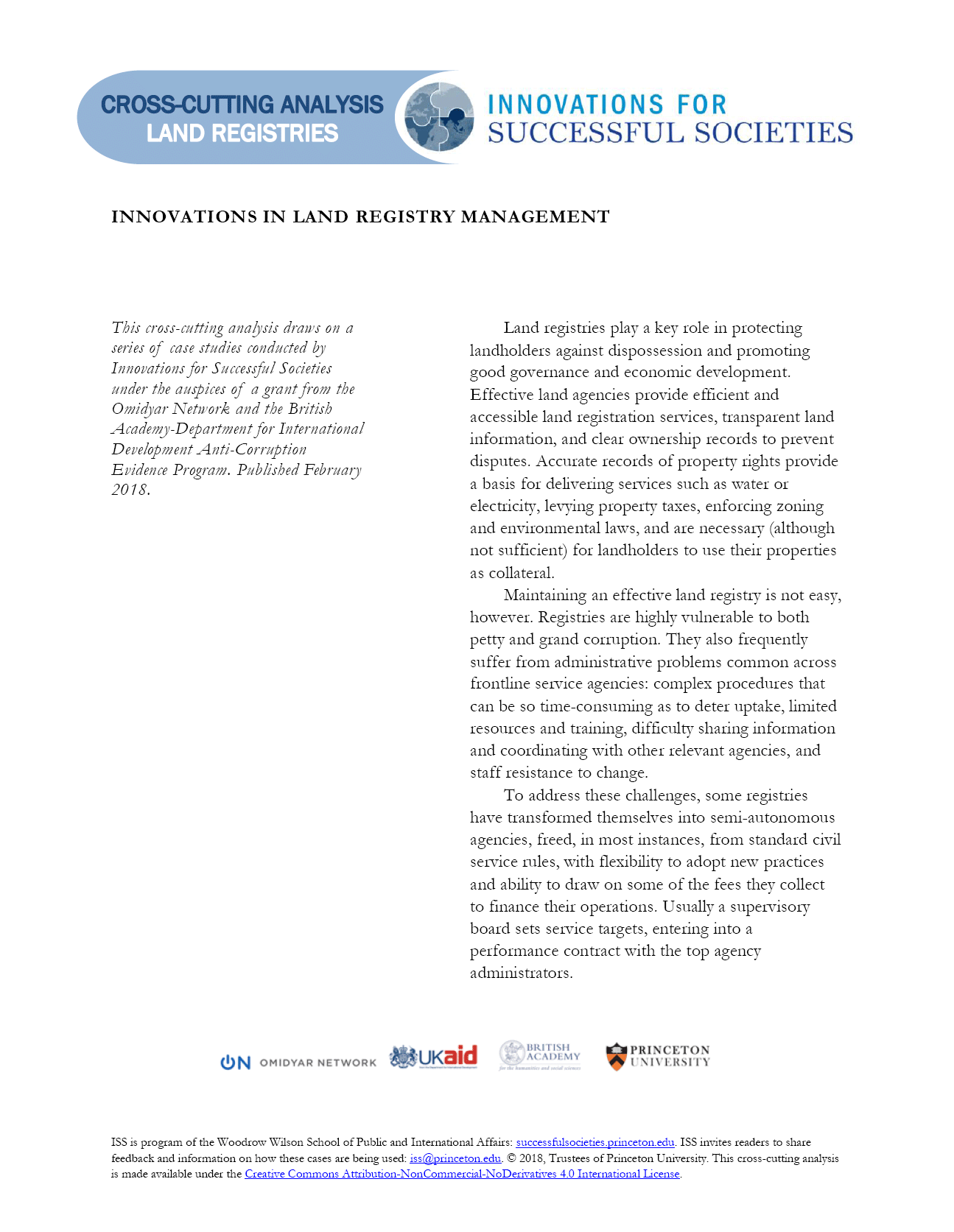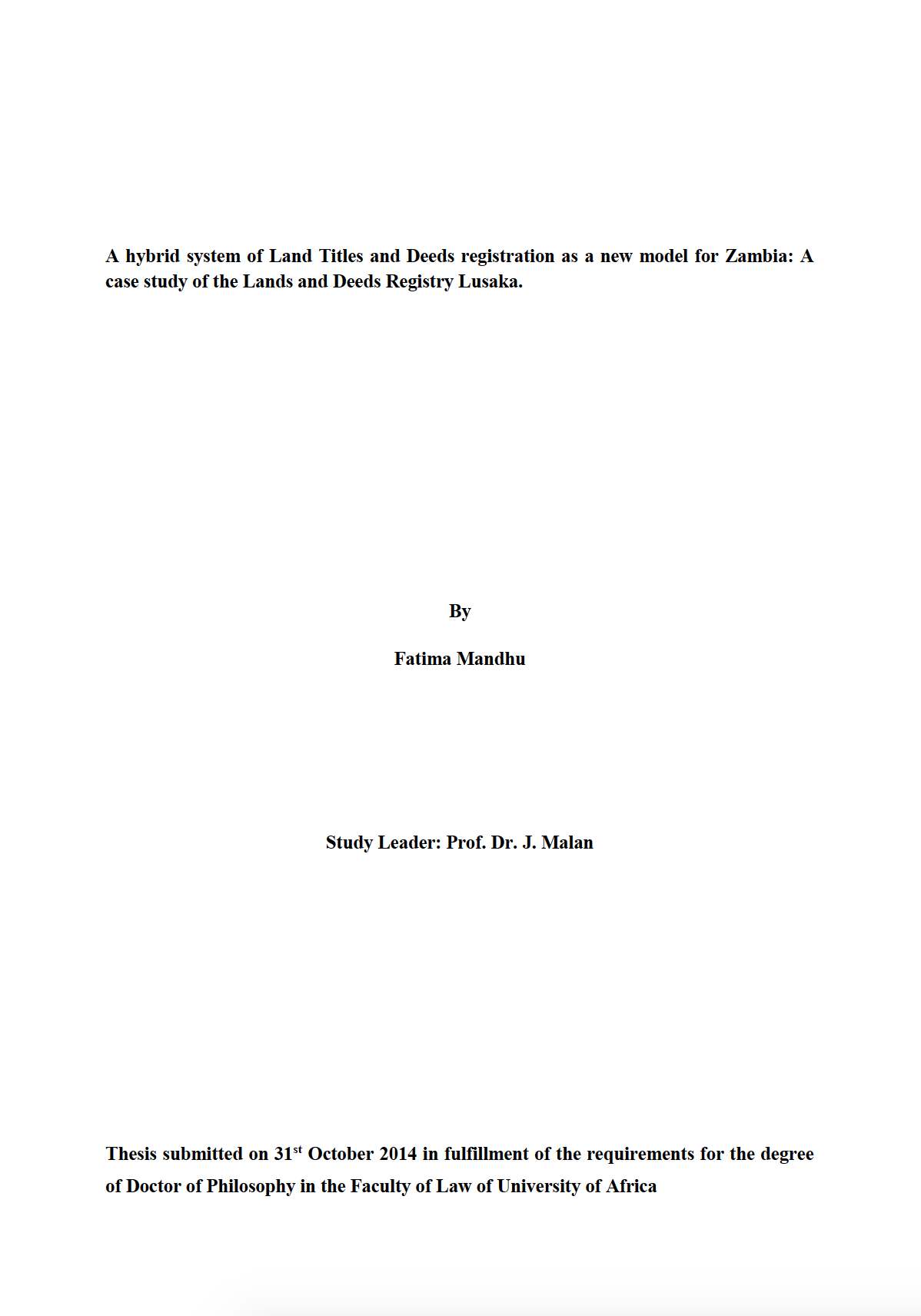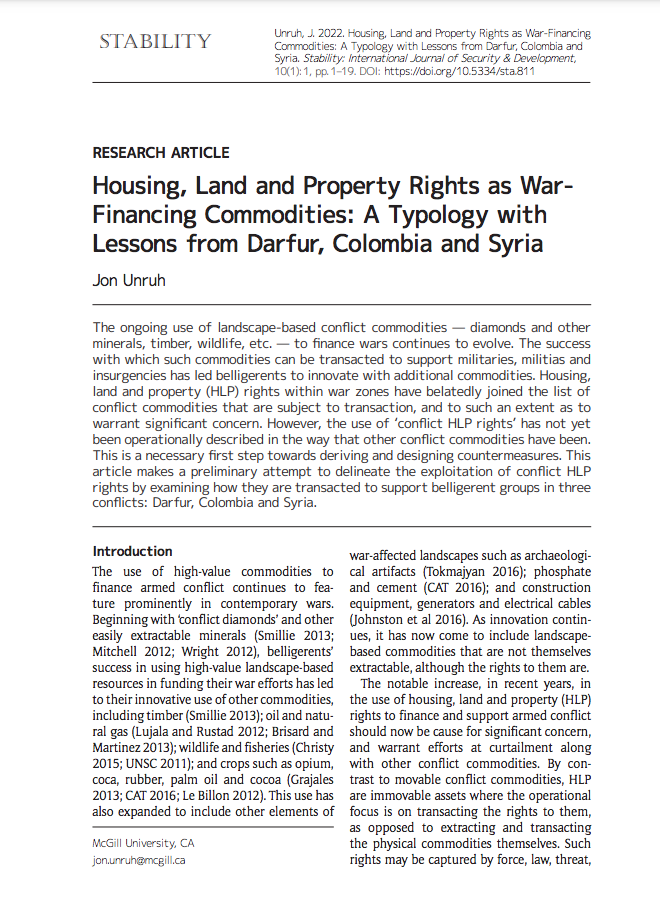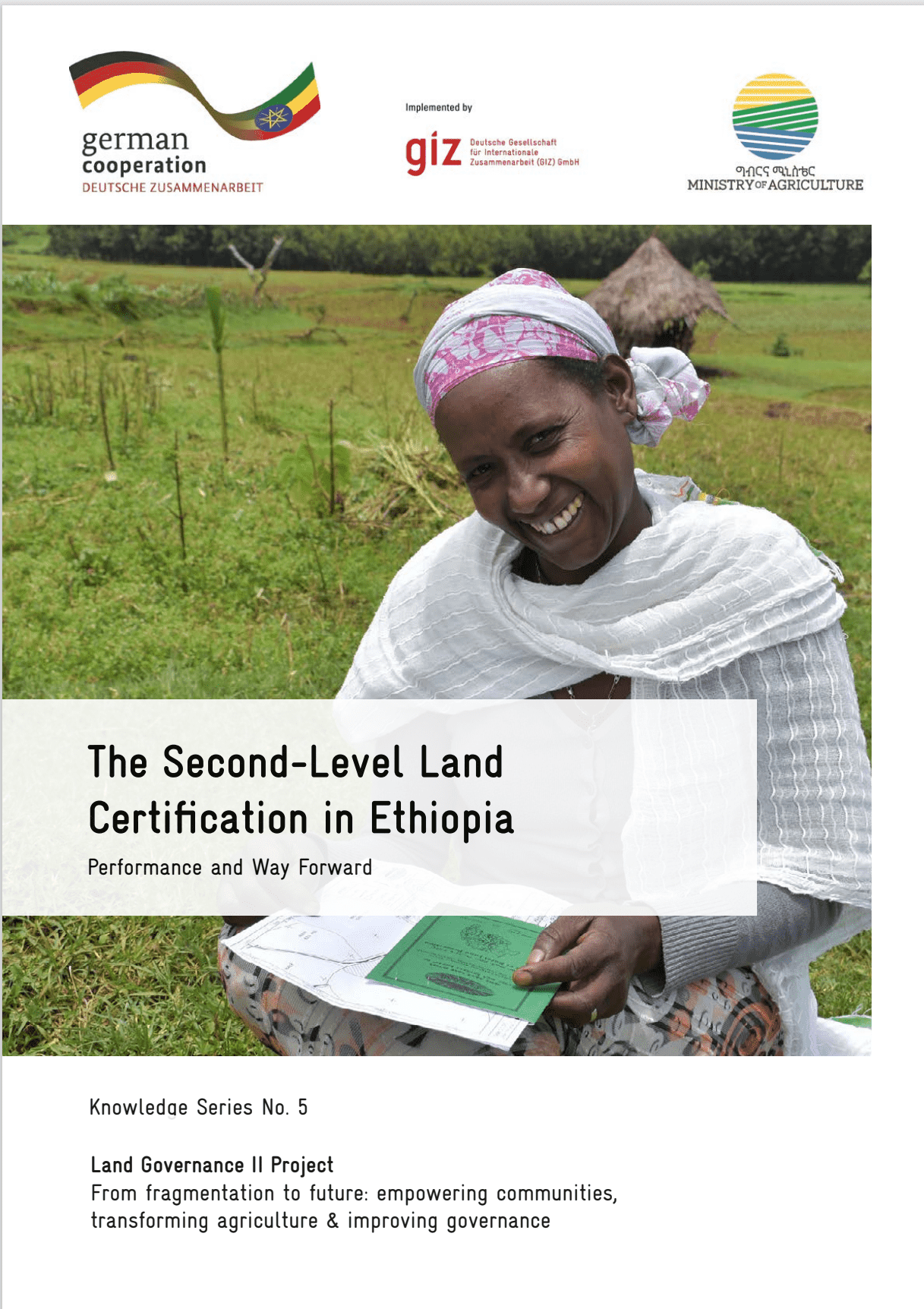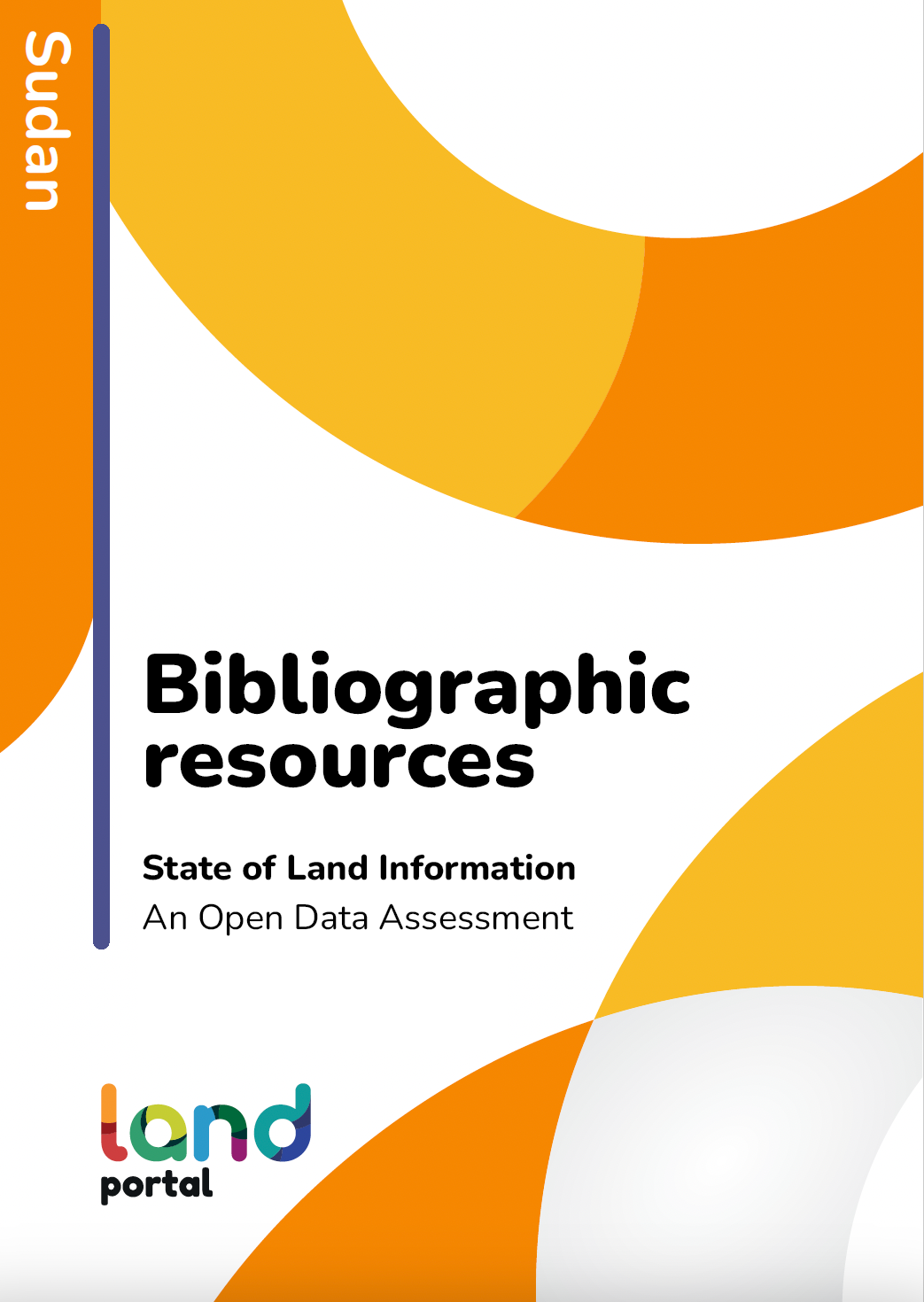FINAL REPORT ON THE INTEGRATED STUDY ON LAND AND FAMILY JUSTICE
Land is a natural resource that is limited and finite but with immense commercial (as an asset and factor of production), social-cultural, spiritual and aesthetic value. On the other hand, a family particularly in the context of Uganda is a fluid social construct deriving its strict definition from a particular social-cultural context. Land and family conflicts have been shown by various studies 1 to be the most prevalent form of livelihoods disruption to many households’ and individuals.


